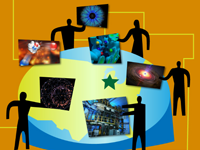
|
Cococubed.com
|
| National Nuclear Physics Summer School 2009 |
Home
Astronomy Research
2026 Neutrinos From De-excitation
2024 Radiative Opacity
2024 Neutrino Emission from Stars
2023 White Dwarfs & 12C(α,γ)16O
2023 MESA VI
2022 Earendel, A Highly Magnified Star
2022 Black Hole Mass Spectrum
2021 Skye Equation of State
2021 White Dwarf Pulsations & 22Ne
Software Instruments
2026 AAS Journals
AAS YouTube
Listing of 500+ Author Videos
AAS Peer Review Workshops
Outreach Material
Education Material
Other Stuff:
Bicycle Adventures
Illustrations
Presentations
Equation of State
Stellar Neutrino Emission
The MESA Project
Stellar Neutrinos
Low Energy Nuclear Astrophysics
Celebration of Margaret Burbidge
The MESA Project
Rise of the Elements
White Dwarf Cocktails
Stars and Explosion Models
High Energy Astrophysics
Bonanza of Frontiers
Four Vignettes
Smashing White Dwarfs
Unstable isotopes & Burning
Customizing MESA's pgstar
Hunting SNIa Progenitors
Silicon ejecta from SNIa
NucAstro & Astrobiology
HIPACC SS EOS
NNPSS Lectures
Double degenerate SNIa
Peak Luminosity of SNIa
26Al and 60Fe
A Celebration of Willy Fowler
Contact: F.X.Timmes
my one page vitae,
full vitae,
research statement, and
teaching statement.
Nuclear Astrophysics Lectures The 2009 school continues the tradition of past NNPSSs The NNPSS is distinctively different from many other schools in that it provides lectures and activities that cover the entire field of contemporary nuclear physics, ranging from QCD and the structure of the nucleon, over the reactions and structure of nuclei, to astrophysics. Particular attention is being paid to fostering interactions between students and lecturers as well as among the students that tend to come from all areas of nuclear science. This not only helps to broaden the perspective of the new generation but also aids in the formation of a community spirit within the field. The school can accommodate 50 students typically within 1-2 years either side of earning a PhD.
 Goals, nomenclature, forming a network, pp-chains,
June 29
Goals, nomenclature, forming a network, pp-chains,
June 29 CNO cycles, time integration, jacobian formation,
June 30
CNO cycles, time integration, jacobian formation,
June 30 Energy generation, thermodynamic trajectories, big bang nucleosynthesis,
July 1
Energy generation, thermodynamic trajectories, big bang nucleosynthesis,
July 1 A general network, radioactive isotopes, and the case of 60Fe and 26Al,
July 02
A general network, radioactive isotopes, and the case of 60Fe and 26Al,
July 02 |